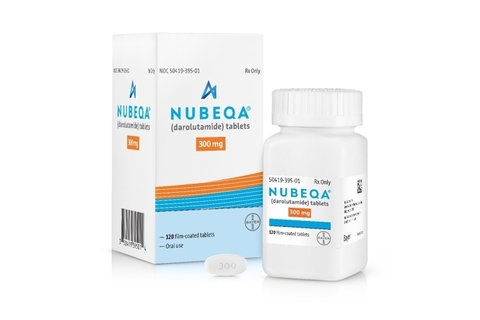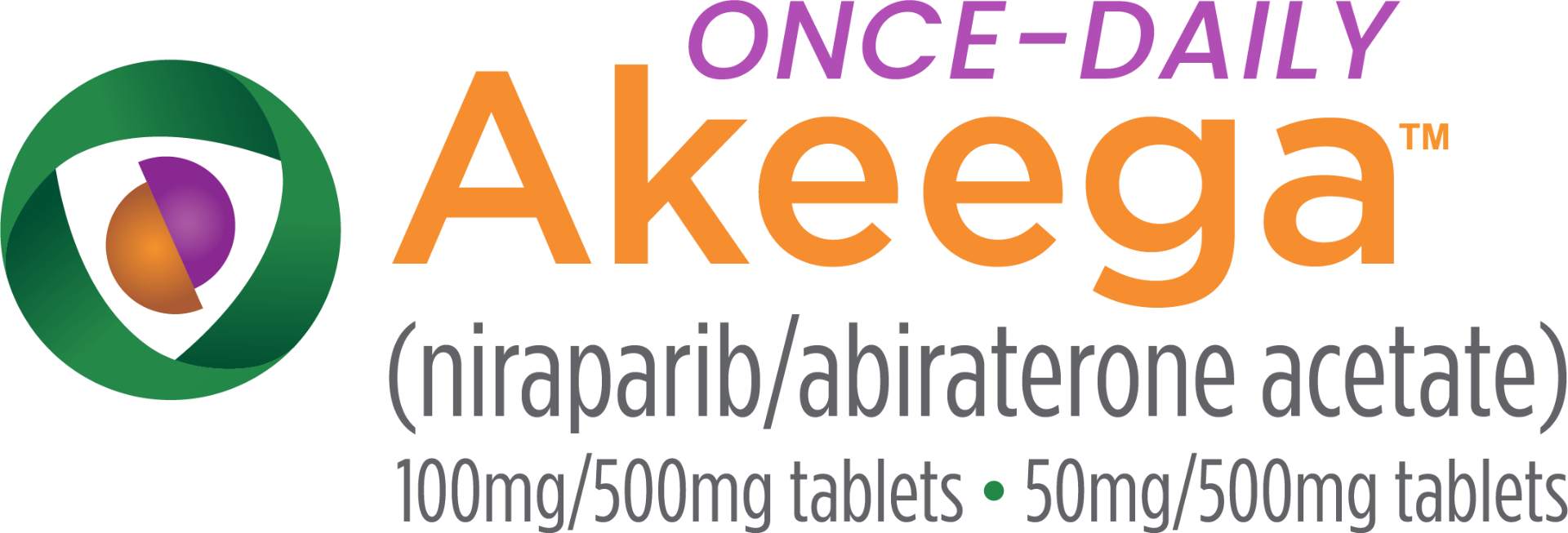Nubeqa (darolutamide) vs Akeega (niraparib and abiraterone acetate)
Nubeqa (darolutamide) vs Akeega (niraparib and abiraterone acetate)
Nubeqa (darolutamide) is a non-steroidal androgen receptor inhibitor used specifically for the treatment of non-metastatic, castration-resistant prostate cancer, and it works by blocking the effect of androgens, which can slow the growth of prostate cancer cells. Akeega, on the other hand, combines niraparib, a PARP inhibitor that helps in preventing cancer cells from repairing their DNA, with abiraterone acetate, which decreases the production of androgens both within the body and the tumor itself, and is used for treating metastatic castration-resistant prostate cancer. When deciding between the two, it is crucial to consider the stage and progression of prostate cancer, as well as individual patient factors such as previous treatments and overall health, since Nubeqa is tailored for a non-metastatic setting, while Akeega targets metastatic disease and involves a combination therapy approach.
Difference between Nubeqa and Akeega
| Metric | Nubeqa (darolutamide) | Akeega (niraparib and abiraterone acetate) |
|---|---|---|
| Generic name | Darolutamide | Niraparib and Abiraterone Acetate |
| Indications | Non-metastatic castration-resistant prostate cancer (nmCRPC) | Metastatic castration-resistant prostate cancer (mCRPC) |
| Mechanism of action | Androgen receptor inhibitor | Niraparib: PARP inhibitor; Abiraterone Acetate: CYP17 inhibitor |
| Brand names | Nubeqa | Akeega |
| Administrative route | Oral | Oral |
| Side effects | Fatigue, pain in extremity, rash | Hypertension, hot flush, joint swelling |
| Contraindications | Hypersensitivity to darolutamide | Hypersensitivity to niraparib or abiraterone acetate |
| Drug class | Nonsteroidal antiandrogen | Niraparib: PARP inhibitor; Abiraterone Acetate: Androgen biosynthesis inhibitor |
| Manufacturer | Bayer | Janssen Biotech (for Abiraterone Acetate); GlaxoSmithKline (for Niraparib) |
Efficacy
Nubeqa (Darolutamide) Efficacy in Prostate Cancer
Darolutamide, marketed under the brand name Nubeqa, is a medication specifically indicated for the treatment of non-metastatic castration-resistant prostate cancer (nmCRPC). It is an androgen receptor inhibitor that works by blocking the effect of androgens, which can stimulate the growth of prostate cancer cells. The efficacy of Nubeqa was demonstrated in a pivotal phase 3 clinical trial known as ARAMIS. In this study, darolutamide significantly extended metastasis-free survival compared to placebo. Patients treated with Nubeqa showed a median metastasis-free survival of 40.4 months compared to 18.4 months for those receiving placebo, which represents a substantial improvement in delaying the progression of nmCRPC.
Akeega (Niraparib and Abiraterone Acetate) Efficacy in Prostate Cancer
Akeega is a combination of two drugs, niraparib and abiraterone acetate, used for the treatment of prostate cancer. Niraparib is a poly (ADP-ribose) polymerase (PARP) inhibitor, while abiraterone acetate is a CYP17 inhibitor that decreases the production of certain hormones in the body, including testosterone, which can promote the growth of prostate cancer cells. The combination of these two drugs is designed to target different pathways involved in prostate cancer progression. The efficacy of this combination in prostate cancer is being investigated in clinical trials, and preliminary results have shown promise in improving outcomes for patients with metastatic castration-resistant prostate cancer (mCRPC), particularly in those with DNA repair defects.
It is important to note that the use of Akeega (niraparib and abiraterone acetate) in prostate cancer is considered off-label, as it is not yet specifically approved for this indication. However, ongoing research and clinical trials continue to evaluate its safety and efficacy. Physicians may consider this combination based on the patient's individual case and in accordance with current clinical guidelines and evidence.
Both Nubeqa and Akeega represent advances in the treatment of prostate cancer, offering new options for patients with different stages of the disease. As with any medication, the decision to use these drugs should be based on a thorough discussion between the patient and their healthcare provider, taking into account the potential benefits and risks, as well as the specific characteristics of the patient's cancer. Ongoing research and clinical trials will further clarify the role of these medications in the management of prostate cancer.
Regulatory Agency Approvals
Nubeqa
-
European Medical Agency (EMA), European Union

-
Food and Drug Administration (FDA), USA

Akeega
-
European Medical Agency (EMA), European Union

-
Food and Drug Administration (FDA), USA

Access Nubeqa or Akeega today
If Nubeqa or Akeega are not approved or available in your country (e.g. due to supply issues), you can access them via Everyone.org.
How it works

Make an enquiry
Choose the medicine you want to buy, answer a couple of questions, and upload your prescription to speed things up. We’ll get back to you within 24 hours.


Make an enquiry
Choose the medicine you want to buy, answer a couple of questions, and upload your prescription to speed things up. We’ll get back to you within 24 hours.


Breeze through the paperwork
We'll guide you through the required documents for importing unapproved medicine, ensuring you have all the necessary information.


Get a personalized quote
We’ll prepare a quote for you, including medicine costs and any shipping, administrative, or import fees that may apply.


Receive your medicine
Accept the quote and we’ll handle the rest - sourcing and safely delivering your medicine.

Some text on this page has been automatically generated. Speak to your physician before you start a new treatment or medication.
Let's talk
If you have any questions, call us or send us a message through WhatsApp or email:
Contact us




